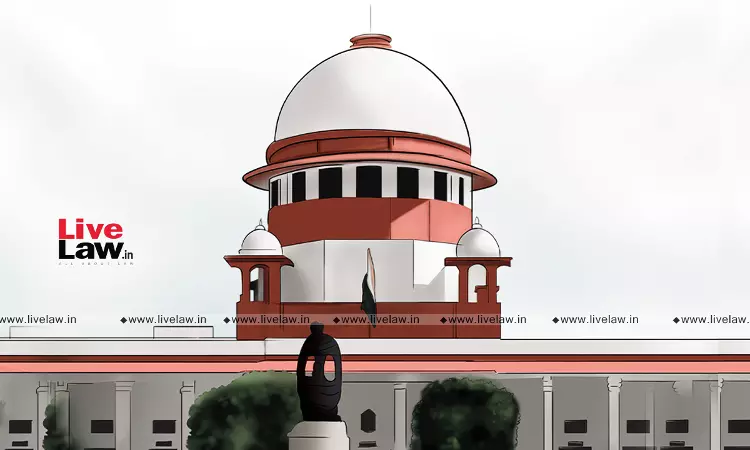'Dock Identification Without Test Identification Parade Unreliable When Witness Had No Familiarity With Accused' : Supreme Court
Yash Mittal
18 Oct 2025 8:29 AM IST

The Supreme Court recently acquitted three persons convicted of murdering a minor, holding that the prosecution had failed to establish their guilt beyond a reasonable doubt. The Court extended the benefit of doubt to the accused, observing that they were strangers to the key witness and that their dock identification, unsupported by any Test Identification Parade ("TIP"), was unreliable.
“where the accused is a stranger to the witness and no TIP is held, courts must exercise extreme caution in accepting such identification.”, the court said.
A bench of Justice MM Sundresh and Justice Satish Chandra Sharma heard the case where the Appellants-accused were convicted for the offence of the murder of a 10-year-old boy, where the witness claimed to have last seen them with the deceased, however no TIP was done to test the reliability of their identification. The trial court convicted the Appellants based on the witnesses' dock identification during trial ignoring the fact that the Appellants were strangers to them and no TIP took place.
Aggrieved by the Uttarakhand High Court's affirmation of the trial court's decision, the Accused appealed to the Supreme Court.
Setting aside the impugned findings, the judgment authored by Justice Sharma, relying on P. Sasikumar v. State, 2024 LiveLaw (SC) 460 emphasized that the failure to hold TIP renders the dock identification doubtful, making it unsafe to rely upon. In the P. Sasikumar case, the acquittal was made solely on this ground.
“It is well settled that dock identification without a prior TIP has little evidentiary value where the witness had no prior familiarity with the accused…Both witnesses identified the Appellants for the first time in court, which, in the absence of a TIP, renders their dock identification less credible. Their testimonies, therefore, cannot constitute reliable evidence of identification.”, the court observed.
Also, noting that the prosecution's case was entirely based on circumstantial evidence, and the prosecution's failure to establish the complete and unbroken chain of circumstances led to the irreversible conclusion granting a benefit of doubt to the accused-appellants, the court said.
“we are of the considered view that the prosecution has failed to establish a complete and unbroken chain of circumstances. The circumstances on record are not consistent with the hypothesis of the guilt of the accused and fail to exclude every other reasonable hypothesis, including their innocence. As is well-settled, suspicion, however strong, cannot take the place of proof. Accordingly, the Appellants are entitled to the benefit of the doubt.”, the court added.
Accordingly, the appeal was allowed, and the Appellants were acquitted.
Cause Title: NAZIM & ORS. VERSUS THE STATE OF UTTARAKHAND
Citation : 2025 LiveLaw (SC) 1019
Click here to read/download the judgment
Appearance:
For Appellant(s) Mr. K.K.Tyagi, Adv. Mr. Iftekhar Ahmad, Adv. Mr. Rajeev Kumar Bansal, Adv. Ms. Garima Tyagi, Adv. Mr. Sarvam Ritam Khare, AOR
For Respondent(s) Mr. Akshat Kumar, AOR Ms. Anubha Dhulia, Adv.


